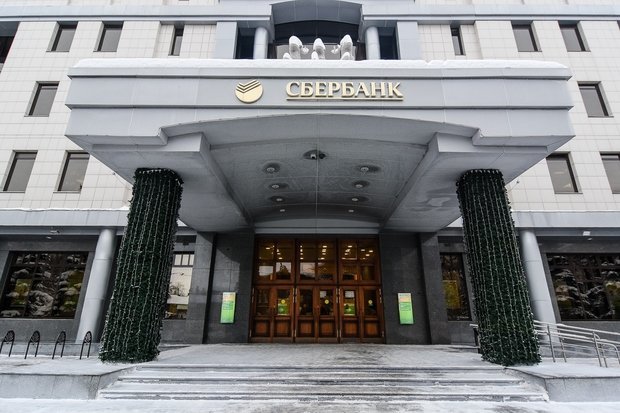The USA to hit Russian commodity bundle?
'Crushing sanctions against Putin's Russia' can become sanctions against ordinary Russians
The sharp weakening of the ruble, which began in the middle of the week, has dragged on for several days. The Russian ruble fell on Wednesday, Thursday and Friday to the news of the new US sanctions against major Russian banks and a possible ban on operations with securities of the Ministry of Finance of Russia. Experts interviewed by Realnoe Vremay say that the situation can develop in both directions; it is also possible that the Russian currency will win back the losses. However, if this does not happen, it will hurt not only state banks, but also ordinary citizens — a weak ruble threatens a jump in prices.
New crushing sanctions instead of old useless ones
On August 8, Kommersant newspaper published the content of the draft bill on new sanctions against Russia introduced by Senator Lindsay Graham. The document 'Defending American Security from Kremlin Aggression Act of 2018' is intended as a response to the ''continued interference'' in the US elections, ''malign influence in Syria'', as well as ''aggression in Crimea''.
On his personal website, Republican Graham noted that the sanctions adopted to date have proved ineffective and cannot keep Russia from trying to influence future campaigns. ''Our goal is to change the status quo and impose crushing sanctions and other measures against Putin's Russia until he ceases and desists meddling in the U.S. electoral process, halts cyberattacks on U.S. infrastructure, removes Russia from Ukraine, and ceases efforts to create chaos in Syria,'' the senator writes.
Among the measures proposed by Graham there were restrictions on the Russian banking sector, as well as the ban on operations with government bonds. It is proposed to freeze the assets of seven banks in the United States and block their transactions through correspondent accounts in American financial institutions. According to the bill, Sberbank, VTB, Promsvyazbank and Vnesheconombank, in respect of which other sanctions are already in force, may fall under this bill.

Also, senators want to ban US citizens and companies from participating in operations with the Russian state debt, if the period of its circulation exceeds 2 weeks. This measure, which has been discussed since last year, will apply only to new bond issues.
The news of the new package of sanctions has had a bad impact on the ruble and the stock market. On Wednesday, the Russian currency fell against the dollar by 1,36 rubles — at the end of trading the indicative dollar rate for the first time in almost a month and a half reached 64,85 ruble. On August 9, the ruble dropped even more — to 66,3/$. During Friday, the dollar reached 67 rubles — the highest level since August 2016.
Besides, media publications have collapsed quotes of the largest state banks. On August 8, Sberbank shares fell by 4,26%, although the next day the fall was partially bounced back. VTB securities lost 2,37% on the day of the publication of Kommersant, and no correction was followed the next day.
On the night of August 9, it became known about another package of sanctions — this time the initiator was the US State Department, and the reason was 'the Skripal case''. According to The Washington Post, the next sanctions may hit Aeroflot, as well as affect the diplomatic relations and the export of American goods.
The Central Bank tried to reduce the degree of tension in the financial market and stop the sale of ruble assets. On Friday, they published a post, in which they claimed that they kept the situation under control and ''has enough tools to prevent threats to financial stability''.

''The increased volatility of the ruble exchange rate in recent days is a natural reaction of the financial market to the news of new potential sanctions against the background of changes in global financial markets. Such episodes of volatility have already arisen earlier against the background of the discussion of sanctions restrictions and were of a temporary nature. The support for the ruble is still provided by significant sales of export foreign exchange earnings,'' the report states.
''While there is a threat of further sanctions, the market will be volatile''
Experts interviewed by Realnoe Vremya say that it is difficult to predict the development of the situation — it can develop in both directions. It is possible that the ruble will win back the losses, but the fall may drag on. In the latter case, there is a threat of even greater acceleration of inflation.
-
-

Sergey Khestanov Associate Professor at Ranepa, Advisor for Macroeconomics to Director General of Otkritie Broker
-
If the ruble does not bounce back, inflation will inevitably accelerate. About a third of the commodity bundle of the average Russian is imported goods, so after the weakening of the ruble, as a rule, there is an increase in prices. It is unlikely that it will be catastrophic, yet we all will feel it.
It is impossible to say for sure whether the ruble will recover, but there is a general pattern that works in most cases. Usually any strong price movement is followed by a movement in the opposite direction. Therefore, if there is at least a temporary pause in the sanctions rhetoric, we will see a correction. If the escalation continues, it is possible that we will remain at the levels at which we are being now, or even go lower. But again, because it's policy-driven, it's impossible to predict anything with high accuracy — the politicians themselves have not yet decided what they will do.
-
-
-

Anton Tabakh Chief Economist at Expert Rating Agency
-
Certainly, there is a threat of inflation acceleration, however, over the years prices become much less sensitive to the ruble. If in 1998 Russian scientists believed that the transmission was about 30% (that is, the rate shift by 10% added 3% to inflation), then in 2008 it was already 10%; now it probably does not exceed 5% due to the localization of commodity bundle. In short, there is a problem, but it is small. For example, the increase in VAT next year will cause a much more significant guaranteed surge in inflation.
In general, from a macroeconomic point of view, the impact of sanctions can be very moderate and rather slow. There are several catastrophic sanctions scenarios, but with the current state of the trade balance, with low public debt and a stable budget, it will take a long time to undermine the situation. Everyone well learned the lessons of 1998 and 2008. Yes, there is nothing good about sanctions, but from the macroeconomic point of view, their effect is quite neutral.
-
-
-

Yaroslav Kabakov Deputy Director General of Finam Investment Company
-
The current weakening of the ruble is not due to the sanctions alone — the situation is very ambiguous, we have great uncertainties in world trade. The actions taken today by the US and specifically Donald Trump, give a lot of risks for the world economy, and, of course, this is reflected in the Russian ruble. For example, today [August 10] the increase in Trump's duties on steel and aluminum from Turkey strongly collapsed the Turkish lira. So, to be honest, I would not just blamed the sanctions against Russia — we can see sales in all emerging markets.
-
-
-

Denis Gorev Head of Asset Management Department at General Invest
-
Two factors continue to have an impact on the ruble — the negative dynamics in oil and the growth of political tension in connection with the sanctions. As long as these factors remain in force, the positive in the ruble cannot be expected. Ruble fluctuations in the range of plus or minus 10% do not seriously affect the inflation, but a stronger weakening, of course, can have a negative impact on prices. The same is with the quotes of shares of Russian banks: while there is a threat of further sanctions, the market will be volatile, and it is unlikely that we should expect the trend of increase.
-